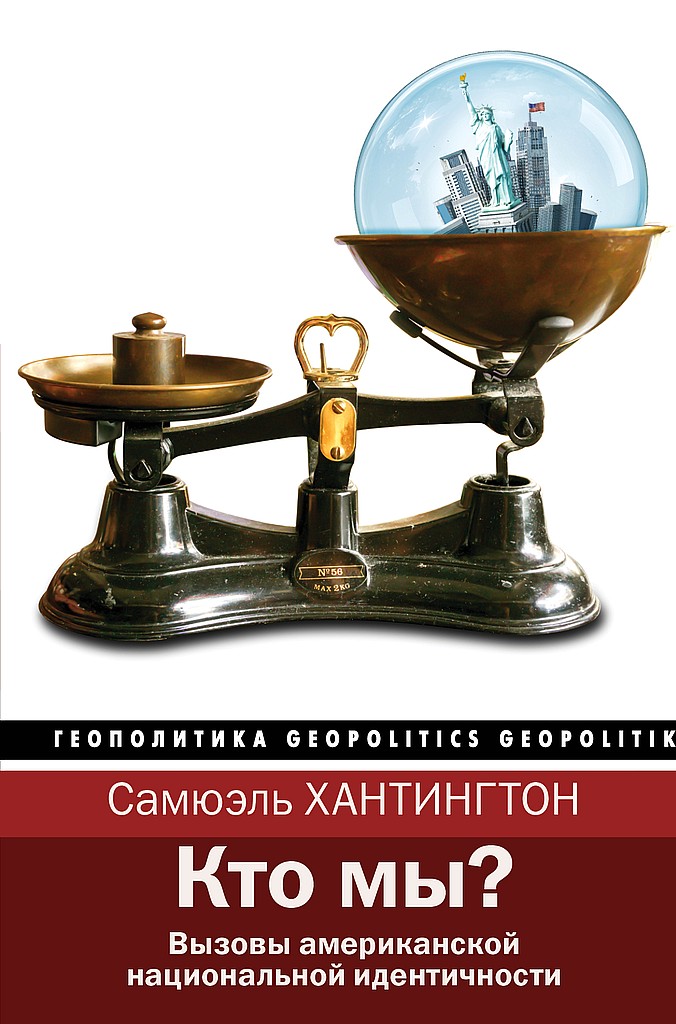York: St. Martin’s Press, 2
nd ed., 1983), p. 50–53; Rogers M. Smith,
Civic Ideals: Conflicting Visions of Citizenship in U. S. History (New Haven: Yale University Press, 1997), p. 75; Michael Novak,
God’s Country: Taking the Declaration Seriously (Washington, D. C.: American Enterprise Institute, 1999 Francis Boyer Lecture, 2000), p. 12–17.
{111} Quotations from Walter A. McDougall, Promised Land, Crusader State: The American Encounter with the World Since 1776 (Boston: Houghton Mifflin, 1997), p. 38; Robert N. Bellah, The Broken Covenant: American Civil Religion in Time of Trial (Chicago: University of Chicago Press, 2nd ed., 1992), p. 180–82; Jon Butler, Awash in a Sea of Faith: Christianizing the American People (Cambridge: Harvard University Press, 1990), p. 214; Novak, God’s Country, p. 25–26; Alexis de Tocqueville, Democracy in America (New York: Vintage, 1945), vol. 1, p. 316.
{112} Sidney E. Mead, The Nation With the Soul of a Church (New York: Harper & Row, 1975), p. 78ff.
{113} Butler, Awash in a Sea of Faith, p. 268.
{114} Roger Finke and Rodney Stark, The Churching of America: 1776–1990: Winners and Losers in Our Religious Economy (New Brunswick, N. J.: Rutgers University Press, 1992), p. 16–21 and passim.
{115} Tocqueville, Democracy in America, vol. 1, p. 45, 316, 319; Philip Schaff, America: A Sketch of Its Political, Social, and Religious Character, (Cambridge: Harvard University Press, 1961) p. 14, 75–76.
{116} James Bryce, The American Commonwealth (London: Macmillan, 1891), vol. 2, p. 278, 577, 583; Gunnar Myrdal, An American Dilemma: The Negro Problem and Modern Democracy (New York: Harper, 1962), vol. 1, p. 11; Paul Johnson, «Writing A History of the American People» (lecture, American Enterprise Institute, Washington, D. C., 13 March 1998), p. 6; Paul Johnson, «The Almost-Chosen People», The Wilson Quarterly, 9 (Winter 1985), p. 85–86.
{117} Gallup/CNN/USA Today Poll, 9–12 December 1999, 17–19 February 2003, 9–10 December 2002, 2–4 September 2002; Quinnipiac University Poll, 4–9 June 2003; General Social Survey 2002, 6 February-26 June 2002, National Opinion Research Center, Q0118; The National Election Studies (Ann Arbor, MI: University of Michigan, Center of Political Studies, 1995–2000), V850; Jack Citrin, Ernst B. Haas, Christopher Muste, and Beth Reingold, «Is American Nationalism Changing? Implications for Foreign Policy», International Studies Quarterly, 38 (March 1994), p. 13, citing 1992 National Election Study.
{118} Quinnipiac University Poll,4–9 June 2003; Gallup Poll, 17–19 February 2003, 18–20 March 2002, 22–24 July 2002, 17–29 June 2002; Gallup/CNN/USA Today Poll, 17–19 February 2003, 9–10 December 2002, 3–6 October 2002, 2–4 September 2002, 28–30 June 2002, 21–23 June 2002; CBS News Poll, 28 April-1 May 2003; Time/CNN/Harris Interactive Poll, 27 March 2003; Investor’s Business Daily/Christian Science Monitor Poll, 3–8 September 2002; Boston Globe, 16 January 1999, p. A3 citing C. Kirk Hadaway and Penny Long Marler, «Did You Really Go to Church this Week? Behind the Poll Data», Christian Century, 6 May 1998, p. 472–5, and Andrew Walsh, Religion in the News, Fall 1998; Lipset, American Exceptionalism: A Double-edged Sword, p. 278; Wall Street Journal, 9 November 1990, p. A8; Economist, 29 May 1999, p. 29.
{119} Krister Stendhal quoted in William G. McLoughlin and Robert N. Bellah, Religion in America (Boston: Beacon Press, 1968), p. xv; The Gallup Organization, The Gallup Poll: Public Opinion 1999 (Wilmington: Scholarly Resources, 2000), p. 50–56.
{120} Kenneth D. Wald, Religion and Politics in the United States (New York: St. Martin’s, 1987).
{121} George Bishop, «What Americans Really Believe», Free Inquiry, 9 (Summer 1999), p. 38–42.
{122} Ronald Inglehart, Miguel Basanez, and Alejandro Moreno, Human Values and Beliefs: A Cross-Cultural Sourcebook: Political, Religious, Sexual, and Economic Norms in 43 Societies: Findings from the 1990–1993 World Values Survey (Ann Arbor: University of Michigan Press, 1998), p. V9, V20, V38, V143, V146, V147, V151, V166, V176.
{123} Smith, Civic Ideals, p. 55–56, 56–57; Kettner, The Development of American Citizenship, p. 66–69; Linda Colley, Britons: Forging the Nation 1707–1837 (New Haven: Yale University Press, 1992), p. 5–6, 11–54.
{124} Smith, Civic Ideals, p. 57; Ernest Lee Tuveson, Redeemer Nation: The Idea of America’s Millennial Role (Chicago: University of Chicago Press, 1968), chapter 5; Ruth H. Bloch, Visionary Republic: Millennial Themes in American Thought, 1756–1800 (Cambridge: Cambridge University Press, 1985), p. 12; Hatch, The Sacred Cause of Liberty, p. 36–44; Kettner, The Development of American Citizenship, p. 114.
{125} Hatch, The Sacred Cause of Liberty, p. 75–76, 131; Cushing Strout, The New Heavens and New Earth: Political Religion in America (New York: Harper & Row, 1974), p. 71; Phillips, The Cousins’ Wars, p. 91–100; McDougall, Promised Land, Crusader State, p. 18; Garry Wills, Under God: Religion and American Politics (New York: Simon & Schuster, 1990), p. 360–362; Bloch, Visionary Republic, p. 58–59.
{126} Ray Allen Billington, The Protestant Crusade, 1800–1860 (New York: Macmillan, 1938), p. 3–21; Theodore Maynard, The Story of American Catholicism (New York: Macmillan, 1941), p. 115.
{127} Will Herberg, Protestant, Catholic, Jew: An Essay in American Religious Sociology (Garden City: Doubleday, 1955), p. 151–52, 186–87; Schaff, America, p. 73. О влиянии смешанных браков на католическую общину, включая семью епископа Джона Кэрролла, см. Joseph Agonito, The Building of an American Catholic Church: The Episcopacy of John Carroll (New York: Garland, 1988), p. 171–77.
{128} Heer, Immigration in America’s Future, p. 35–37, 85–86; Billington, Protestant Crusade, chapters 15–16; Perry Miller, The Life of the Mind in America (New York: Harcourt, Brace and World, 1965), p. 56.
{129} Ivan Musicant, Empire by Default: The Spanish-American War and the Dawn of the American Century (New York: Holt, 1998), p. 17; Philip Gleason, «American Identity and Americanization», in Stephen Thernstrom, ed., Harvard Encyclopedia of American Ethnic Groups, (Cambridge: Harvard University Press, 1980), p. 31–38.
{130} Цитируется в Johnson, «The Almost-Chosen People», p. 88.
{131} Edward Wakin and Joseph F. Scheuer, The De-Romanization of the American Catholic Church (New York: Macmillan, 1966), p. 15–16 and passim; Maynard, The Story of American Catholicism, p. 502; Dorothy



